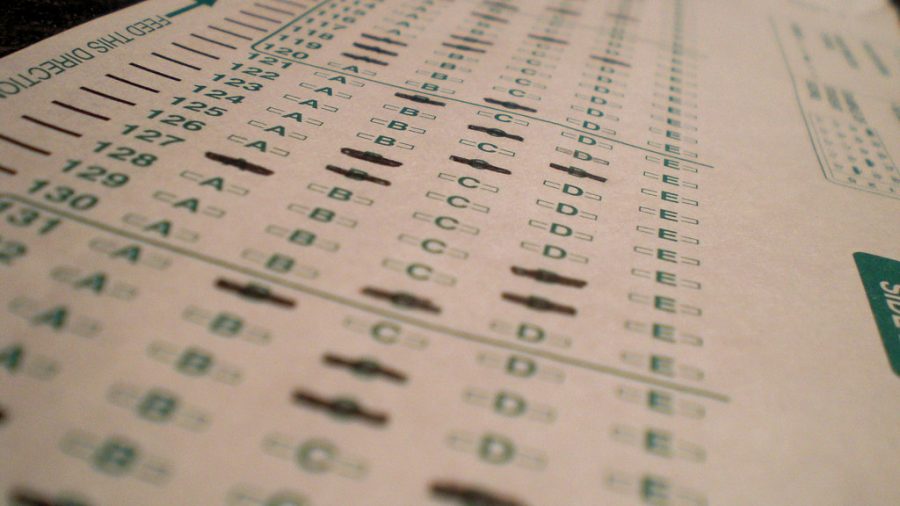Opinion: Standardized testing results in more harm than good
According to a 2015 report by the Washington Post, a student will take about 112 standardized tests from Pre-K to 12th grade.
On top of piles of homework, all-nighters and difficult classes, a regular part of one’s high school experience is standardized tests. With the year-round SAT and ACTs followed by AP’s in the Spring, among others, students are constantly preparing for these exams, as they are told that the rest of their young adult life is dependent upon them.
According to The Washington Post, students spend 60 to 110 hours per year in test prep and a study from the Council of the Great City Schools shows that students spend a staggering 20 to 25 hours a year taking standardized tests.
Due to late night cram sessions and high stakes, students unsurprisingly dread testing season because of the insane amount of stress it causes, which makes students test poorer. According to a 2001 study published by the Brookings Institution, 50-80 percent of test score improvements were temporary and “caused by fluctuations that had nothing to do with long-term changes in learning…”
“Tests are not an accurate representation of how smart we are because some people aren’t good at concentrating. The pressure of taking such an important test takes a toll on people,” senior Carolyn Torres said.
In the 2019 U.S. News and World Report’s annual report ranking high schools across the nation, one of the factors they consider is AP exam results. The school is ranked in the top 10 percent nationally. When focusing on AP results, 64 percent of students in the school took at least one AP exam, while only 39 percent of them actually passed.
Among many factors contributing to these results, a common fear among students is test anxiety, which is the uneasiness of taking upcoming exams due to the fear of failure.
“I believe that the main cause of testing anxiety usually happens because of the pressure of passing the tests so they can get into better classes or in colleges,” junior Alexandra Koran said.
Also, standardized tests only assess basic core skills such as math, reading and science; they neglect to test other expertises. Students who excel in the arts or humanities tend to struggle with these tests, as they commonly evaluate a more structured skill set.
“If standardized testing was able to test a broader range of aspects or topics, I think it would be more [fair] to the students taking it,” junior Abbie Koplewitz said.
Students complain that the emphasis on test preparation prevents true comprehension because the focus is memorization rather than true understanding.
“I think the school and teachers put too much pressure on us to pass the exam rather than comprehending the information,” junior Nina Kaderabek said.
If schools spent less time preparing for a test, and more time making sure students learn and comprehend the material they are learning, anxiety would be lower and overall education would improve.
“It depends on the grade level but I would say that ninth and tenth graders usually test more often because they have to take FSA tests, so on average, it would be about four or more hours of testing,” school testing coordinator Kristi Esterline said.
However, there are students who prefer this type of testing, saying how it is important for the teachers to prepare you for these critical exams.
“I believe that the school can help teachers prepare a curriculum that revolves around testing so they can teach the information needed for these exams in increments rather than all at once,” Koran said.
In the end, if standardized tests continue to stand as the sole indicators of students’ success, it is safe to say that a percentage of individuals may perceive themselves as failures.









